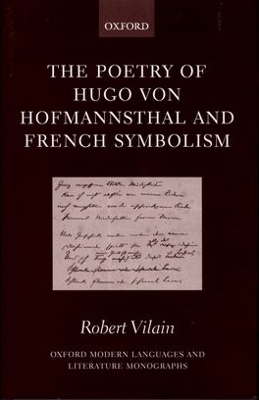Oxford Modern Languages and Literature Monographs
1 total work
Hugo von Hofmannsthal became famous at the age of sixteen for poetry and lyrical drama of almost uncanny facility and beauty. Yet he ceased to write lyric poetry almost completely in the early 1900s and his fictional farewell to poetry, the so-called 'Chandos Letter', is a paradigm for the uncertainty and instability of Modernism. The verse of the 1890s, the 'lyrical decade', is generally felt to have been enhanced by his interest in the French Symbolists and the
Symbolist-inspired tutelage of Stefan George. However, with analyses of verse and prose poetry from the 1890s, this book argues that Symbolism was a fundamentally inhibiting influence, ultimately responsible for the crisis in Hofmannsthal's poetic writing. 'Das Gesprach uber Gedichte', written soon
after 'Ein Brief', in 1903, makes it clear how the crisis was a personal one and does not imply the general impossibility of future writing, as is often suggested. As a theory of poetry, it acknowledges the importance of French Symbolism but suggests how it was ultimately a dummy aesthetic that had previously overlaid and stifled Hofmannsthal's own Romantic leanings.
Symbolist-inspired tutelage of Stefan George. However, with analyses of verse and prose poetry from the 1890s, this book argues that Symbolism was a fundamentally inhibiting influence, ultimately responsible for the crisis in Hofmannsthal's poetic writing. 'Das Gesprach uber Gedichte', written soon
after 'Ein Brief', in 1903, makes it clear how the crisis was a personal one and does not imply the general impossibility of future writing, as is often suggested. As a theory of poetry, it acknowledges the importance of French Symbolism but suggests how it was ultimately a dummy aesthetic that had previously overlaid and stifled Hofmannsthal's own Romantic leanings.
